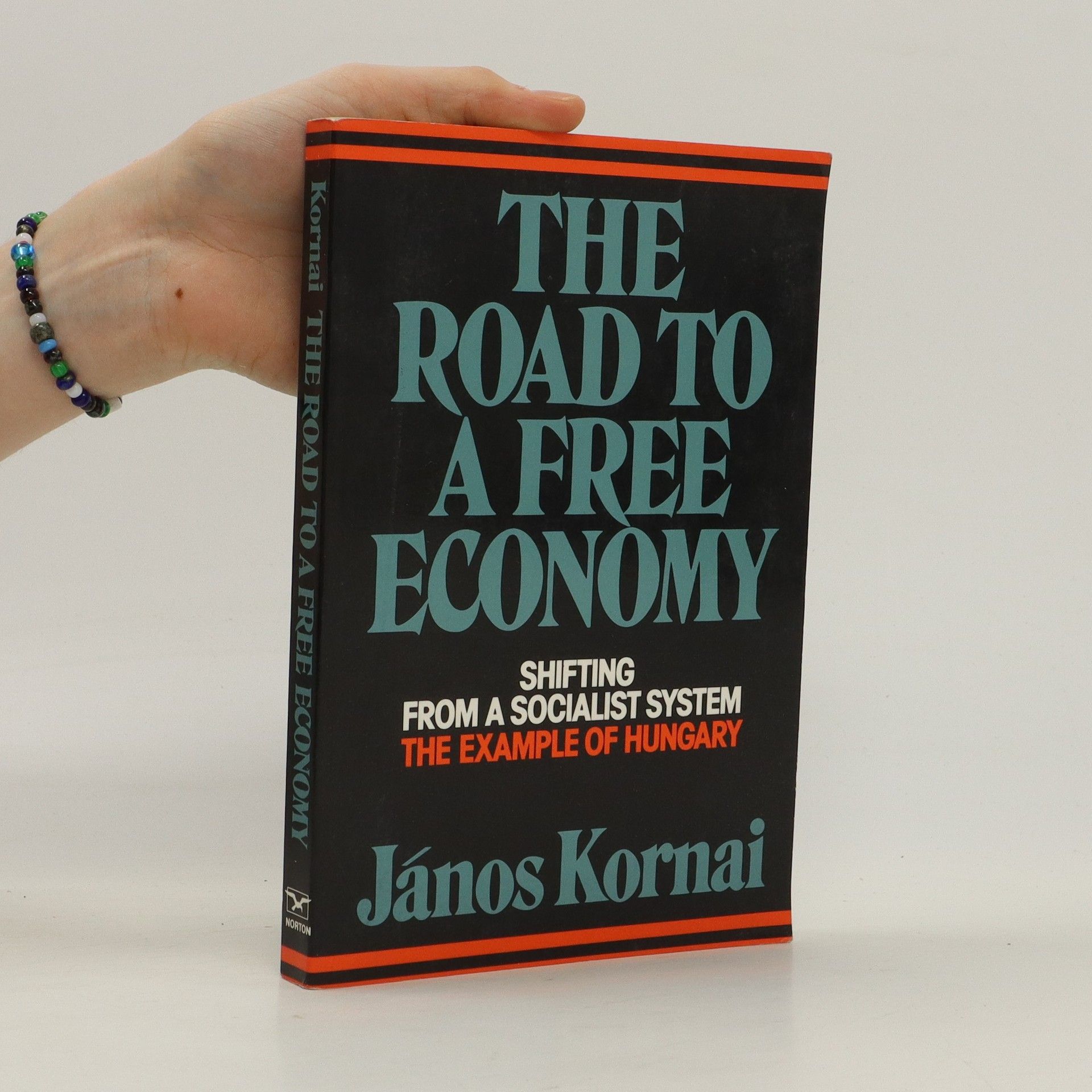Eight essays connected by various common strands. The most important one is the community of the main subject-matter: socialism, capitalism, democracy, change of system. These four expressions cover four phenomena of great and comprehensive importance. Each piece in the book deals with these and the connections between them. One of the Leitmotifs is the "capitalism/socialism" pair of opposites. Capitalism has a history of several hundred years, while the socialist regime existed only for a few decades. But this pair of opposites was central to the history of the twentieth century. This antagonism put its stamp on political thinking, on the foreign policy and military preparedness of every country, and on some appallingly destructive armed conflicts. All these had great secondary influence on each country’s economic development and the standard of living and disposition of its inhabitants. None of the studies is confined to one country—not to Hungary or to any other. Each tries to embrace the problems common to greater units. However, the greater unit comprehended is not the same in each study. One may deal with the capitalist or socialist system in general, another will all the post-socialist countries, and a third the Central East European region. But all extend the analysis beyond the borders of one country.
János Kornai Book order (chronological)







This comparative study explores the similarities and differences between the United States and China in an important arena of overlapping concern: how best to harness public-private collaboration to accomplish some of each society's most vital collective purposes.
Silou mysle
- 596 pages
- 21 hours of reading
Memoáre známeho ekonóma Jánosa Kornaiho, ktoré boli doposiaľ publikované v prekladoch do mnohých svetových jazykov, vyšli práve vo vydavateľstve Kalligram v slovenskom preklade Juraja Šebestu pod názvom "Silou mysle" s podtitulom "Netradičné spomienky na intelektuálnu púť".
Welfare, Choice and Solidarity in Transition
- 380 pages
- 14 hours of reading
Reform of the welfare sector is an important yet difficult challenge for countries in transition from socialist central planning to market-oriented democracies. Here a scholar of the economics of socialism and a health economist offer health sector reform recommendations for ten countries of Eastern Europe, drawn from nine guiding principles.
Beneficial social and economic exchange relies on a certain level of trust. But trust is a delicate matter, not least in the former socialist countries where illegitimate behaviour by governments made distrust a habit. The chapters in this volume analyze the causes and the effects of the lack of social trust in post-socialist countries. The contributions originated in the Collegium Budapest project on Honesty and Theory and Experience in the Light of the Post-Socialist Transition. A second volume entitled, Building a Trustworthy State in Post-Socialist Transition , is being published simultaneously.
Od gulášového komunizmu k trhovej ekonomike
- 228 pages
- 8 hours of reading
Súbor štúdií a prednášok z rokov 1992–1997, v ktorých sa svetoznámy maďarský ekonóm, profesor Harvardskej univerzity, vyjadruje k rozporuplnému a často málo prehľadnému vývoju postkomunistických krajín. Táto kniha je osobitým sprievodcom labyrintom trhovej ekonomiky nielen pre ekonómov.
Focusing on the example of Hungary, this text examines the problems faced today by all Eastern European economies, in the light of the rapidly changing political situation. The author criticizes the practice of state ownership, calling instead for the liberalization of the private sector.
Contradictions and Dilemmas
- 160 pages
- 6 hours of reading
These seven essays by a prominent Eastern bloc economist delve into critical social and economic issues within socialist economies. Published in Hungary in 1983, they offer firsthand insights from an insider striving for frankness and impartiality regarding his country's economic experiment. The essays differentiate between traditional centralized socialist economies and those, like Hungary's, undergoing institutional reforms. Rather than providing a broad analysis, they focus on key characteristics of social economies to encourage comparative thinking. The topics addressed will engage sociologists, political scientists, historians, philosophers, and economists alike. Kornai emphasizes that modern societies often blend elements of capitalism and socialism, resulting in diverse systems featuring various market dynamics and management styles. This comparative perspective highlights both the significant differences and the underlying similarities between these systems. The essays cover themes such as the reproduction of shortage, budget constraints, paternalism, the interplay of economics and psychology, the state of Hungarian economic reform, efficiency in socialist ethics, and public health. János Kornai serves as Professor of Economics at the Institute of Economics, Hungarian Academy of Sciences, Budapest.

